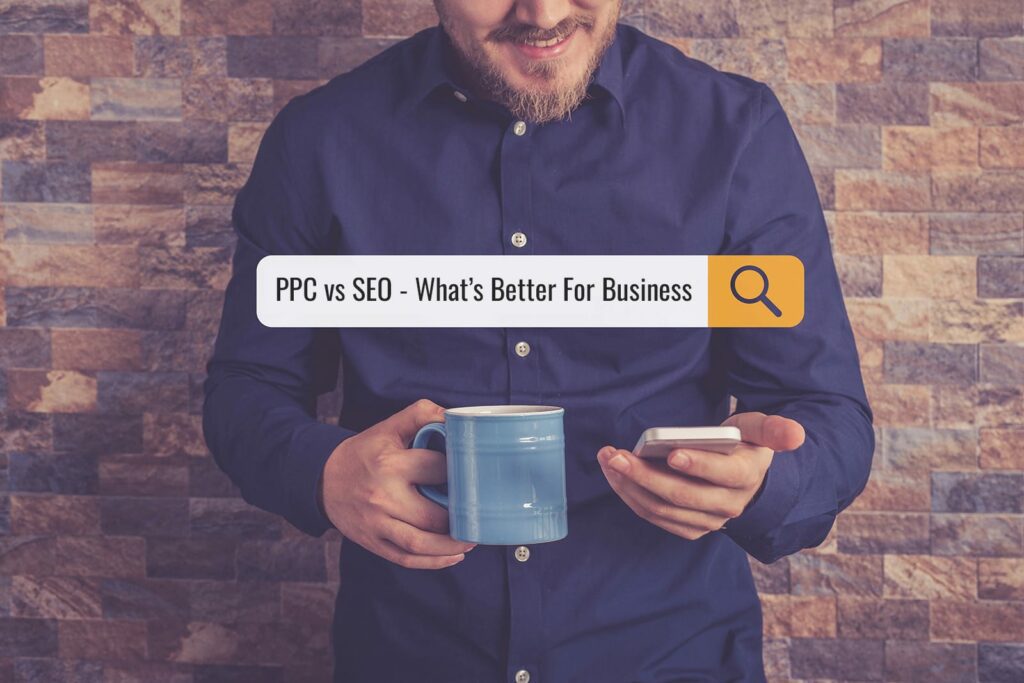Choosing between PPC and SEO can feel like navigating a maze when running a small business. PPC gives you immediate visibility and can drive targeted traffic, which sounds perfect if you need quick results. But those costs can add up fast if the ads are ran without due diligence. Conversely, SEO requires more upfront effort but offers sustainable traffic in the long run, potentially saving money over time. So, which one’s the better option for your business? Explore how your goals, timeline, and budget can shape this crucial decision.
Understanding PPC
Understanding PPC is crucial for small businesses aiming to boost their online presence quickly.
Pay-per-click (PPC) advertising lets you place ads on search engines and pay only when someone clicks. This method provides immediate visibility and drives targeted traffic to your site.
You can set your budget, control costs, and measure performance in real time, which is perfect for businesses with limited resources.
Understanding SEO
Search Engine Optimization (SEO) helps small businesses enhance their long-term online visibility by improving their website’s organic search rankings. By optimizing your site’s content, structure, and technical aspects, you can make it more attractive to search engines like Google.
This involves using relevant keywords, creating high-quality content, and ensuring your website is mobile-friendly and fast-loading.
SEO also includes building backlinks from reputable sites, which signals to search engines that your website is credible. Local SEO is crucial for small businesses, helping you target customers in your geographic area.
While SEO requires consistent effort and time, it builds a sustainable online presence that drives traffic and organically generates leads over time. So, investing in SEO can be a game-changer for your business.
Costs and ROI
Evaluating the costs and ROI of SEO and PPC is crucial for small businesses aiming to maximize their marketing budget. With PPC services, you’ll pay for each click on your ads, giving you immediate visibility but potentially high costs that can quickly add up. However, PPC can yield quick, measurable returns, making it ideal for short-term campaigns or promotions.
SEO, on the other hand, involves investing in optimizing your website to rank higher organically. While the upfront costs might be lower, the ROI can be substantial over time as you build authority and attract consistent traffic without ongoing ad spend. SEO is often more cost-effective in the long run but requires patience and continuous effort to maintain and improve rankings.
Time to Results
When comparing PPC and SEO, the time it takes to see results is crucial.
With PPC, you can see traffic almost immediately after launching your campaign. This instant visibility can be a game-changer if you’re looking for quick wins.
On the other hand, SEO is a long-term strategy. You mightn’t see significant results for several months as it takes time for your website to climb search engine rankings.
If you need fast results and have an advertising budget, PPC is the way to go. However, investing in SEO will pay off in the long run if you’re aiming for sustainable growth.
Your choice depends on your business goals and timeline.
Best Practices
Implementing best practices for both PPC and SEO can significantly improve your small business’s online presence and effectiveness.
For PPC, focus on targeted keywords, compelling ad copy, and regular performance monitoring. Use A/B testing to refine your ads and ensure the best ROI. Remember to set a budget that aligns with your business goals.
For SEO, prioritize high-quality content that provides value to your audience. Optimize your website’s loading speed and mobile responsiveness. Use relevant keywords naturally within your content and meta descriptions. Building backlinks from reputable sites also boosts your search engine ranking. Regularly update your content to keep it fresh and relevant.
Frequently Asked Questions
How Do PPC and SEO Impact Brand Credibility?
PPC offers immediate visibility, but SEO builds long-term trust and credibility. When users see your site ranking organically, they perceive it as more reliable.
Balancing both can enhance your brand’s overall credibility and online presence.
Can PPC and SEO Be Used Together Effectively?
You can absolutely use PPC and SEO together effectively. Combining them boosts visibility and drives both immediate and long-term traffic.
This integrated strategy maximizes your reach and enhances overall marketing performance.
Are There Specific Industries Where PPC Is More Beneficial Than Seo?
You’ll find PPC more beneficial in highly competitive industries like e-commerce and finance.
PPC provides immediate visibility and can quickly drive targeted traffic, which is crucial in sectors where competition for organic rankings is fierce.
How Do User Behavior Trends Affect PPC and SEO Strategies?
User behaviour trends directly influence your PPC and SEO strategies.
When users prefer mobile searches, you should optimize for mobile keywords in SEO and create mobile-friendly PPC ads to capture their attention effectively.
What Are the Potential Risks of Relying Solely on PPC or Seo?
Relying solely on PPC can drain your budget quickly without guaranteed long-term results. Focusing only on SEO might mean slower visibility and vulnerability to algorithm changes.
Diversifying your strategy mitigates these risks effectively.
Final Words
When deciding between PPC and SEO for your small business, consider your goals and resources. PPC is your best bet if you need quick visibility and have the budget.
For sustainable, long-term growth, investing in SEO will pay off over time. Both strategies have their strengths, so align your choice with your immediate needs and long-term vision.
Ultimately, a balanced approach might be the most effective way to achieve your business goals.

